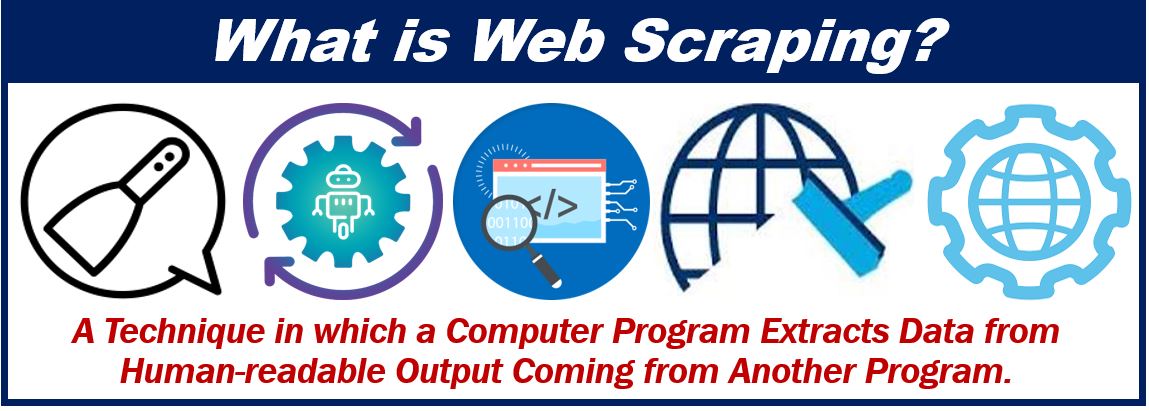Data scraping is a big industry. By some estimates, the global data scraping market is now worth more than $35 billion annually. Naturally, there are a lot of people who want to get in on the action. Anyone serious about carving themselves a slice of this particular pie will need the right tools on their side. And residential proxies that disguise your IP address are essential to make those tools work.

In fact, residential proxies are so integral to the industry that they are now shaping its evolution. Below are some of the key data scraping trends set by residential proxies. Get full knowledge about it on Smartproxy blog. There are plenty of best residential proxy lists online already. But understanding what separates a reliable proxy provider from a subpar one will enable you to make more sense of them.
Slower Initial Speeds
Residential proxy servers borrow the resources of regular people’s laptops and computers. When you connect through a residential proxy network, you use an ordinary person’s internet connection and the IP they are assigned by their ISP. Most home internet connections are nowhere near as fast or stable as that of a datacenter. However, while this might sound like a disadvantage on its own, it can benefit web scrapers.
When you connect through a residential proxy network to access the internet, it is usually because you want to disguise who you are and what you are doing. Many websites that take a dim view of web scrapers on their services will mass ban IP address ranges associated with data centers. The additional speed gained by connecting via a datacenter is nullified by the significantly increased chances of being detected and banned.
So, while a residential proxy might be slower initially, you can use them to accomplish much more. The lower speeds make your connection blend in with all the other ordinary connections and reduce the chances of detection.
Better Access to Data
You can configure a rotating residential proxy to assign your device a new IP address every time you send a request to a website. Most websites today will employ some kind of automatic spam or DDoS protection. These defensive systems will look for individual users who are submitting a large volume of requests in a short space of time and block their IP addresses as a precautionary measure.
By regularly rotating the IP address that you use, you can send your request through different IP addresses and make it seem as if they are coming from different users. With a residential proxy network, any of the IP addresses assigned to you will be ordinary residential IPs. These IPs are assigned to the proxy server by an ISP. Therefore, you can be certain that the IP you are assigned is going to look organic and be indistinguishable from a regular connection.
Access to Localized Data
It isn’t just your IP address that a proxy service can obscure. Another common reason for using VPNs and proxies is that they enable you to spoof your location. For example, if you connect to the internet via a proxy server located in France, any online services that you connect to will see your connection as coming from there. It doesn’t matter where you and your device are actually located; it is the proxy server’s location that you connect through that matters.
Since the introduction of GDPR, many websites have become inaccessible to users in Europe because they fail to adhere to the regulations. California has also introduced its own rules in a similar vein. Over the next few years, we can expect to see more legislative efforts aimed at data privacy and security.
Using a proxy server enables you to access data that is region locked or localized as if you were in the same country. It is not uncommon for some online business types to offer different prices or terms to users from different locations. For example, if you go online to book airplane tickets, the prices offered to you will depend on where you are connecting from. A proxy server enables you to choose the location that you wish to communicate from and to access localized services as if you were there.
Gathering Data on a Larger Scale
The more data you intend to scrape from online sources, the more IP addresses you will need to avoid detection. If you use the same IP address or the same relatively small IP address pool, it is only a matter of time before websites notice and restrict your access.
For the most intensive data scraping operations, a pool of millions of IP addresses is essential. To minimize their chances of being detected by websites, savvy scrapers will configure their proxies to rotate to a new clean IP address for every single request they make. This rotation makes it very hard for the target websites to identify and block users who are connecting through a residential proxy.
There are many residential proxy networks today that offer pools consisting of tens of millions of addresses. You can never have too many IPs to choose between when you are data scraping. It is a good idea to opt for a service with a bigger IP pool. Residential proxy networks tend to have the biggest and best IP networks.
There are a plethora of residential proxy providers out there today. Before you commit to any individual provider, you should carefully research them beforehand. Look for the experiences of other data scrapers. If you can find any like-minded groups on social media, these can be a goldmine of recommendations and advice. Choosing the wrong provider could put your entire operation in jeopardy. Make your choice carefully.
Interesting related article: “What is a Bot?“

